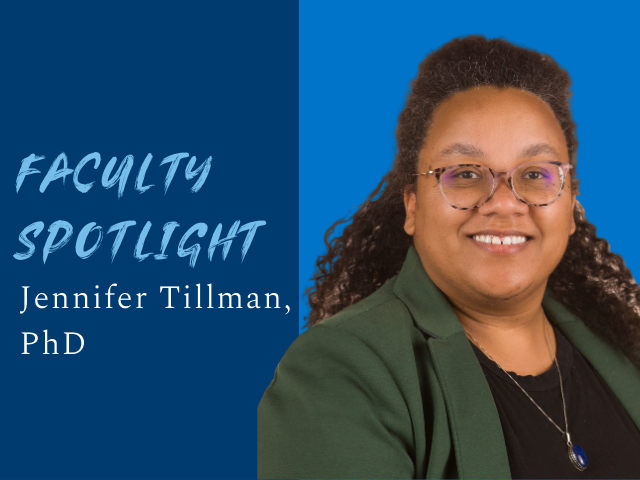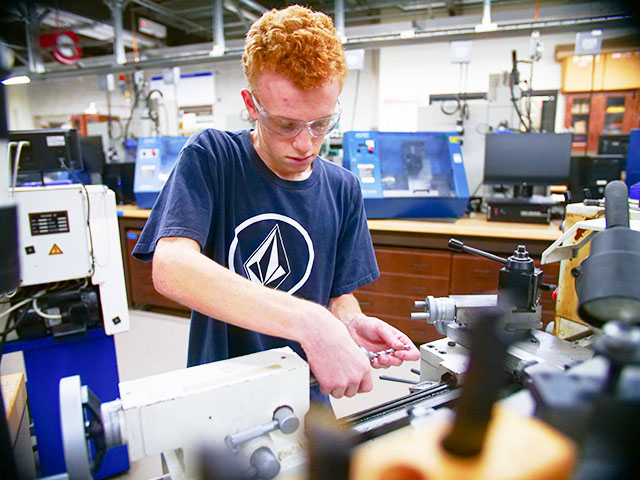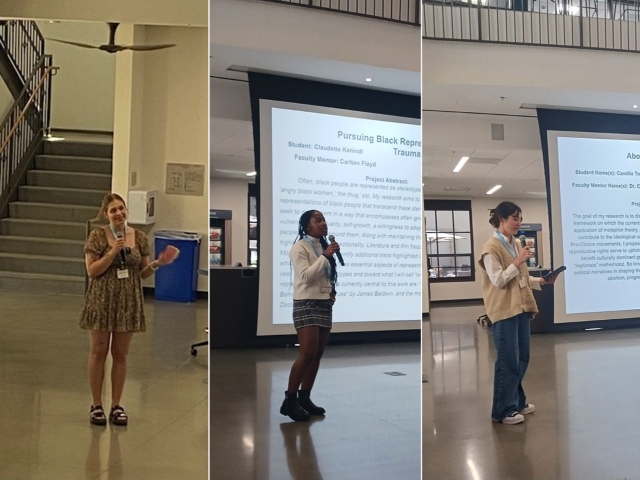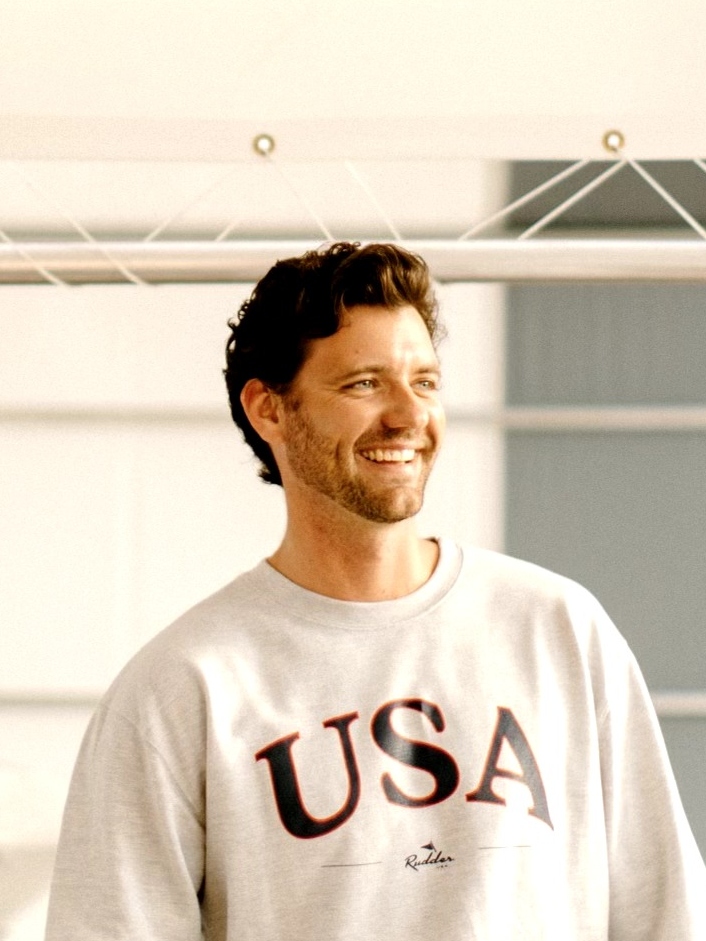Assistant Professor Jennifer Tillman’s Research and Teaching Focuses on Disability Policies and Rights

A devastating life experience led Assistant Professor Jennifer Tillman to pursue scholarly inquiry into philosophy and medical ethics.
As a teenager, her father died after organ failure. Grieving, Tillman asked his doctor why he wasn’t included on an organ donation list. The jaw-dropping answer: Her father’s life had been determined not important enough to save.
“That shaped the rest of my life,” says Tillman. “The question of how we treat people fairly will always be why I do this work. I don’t want that to happen to other people.”
Tillman’s research covers disability and justice with an eye on rethinking health care and devising health care policies that meet the needs of different populations. She is inspired in her work by philosophers including medical ethicist and disability rights advocate Anita Silvers and political philosopher John Rawls, author of “A Theory of Justice,” which addresses basic rights and egalitarianism.
She is currently at work on a paper, “COVID-19, Civil Rights and Persons with Disabilities,” which was workshopped at the American Public Health Association’s annual meeting in Atlanta. The paper examines how care decisions were made during the worldwide pandemic, how care was rationed and how disabled people were denied access to resources.
Tillman is also writing about self-esteem, self-respect and health, through the lens of attitudes presented by health care institutions that may lead disabled people not to seek care for fear of disrespect.
“It’s more of a philosophical view that comes down to the reason why there are barriers in accessing care – because health care institutions create barriers which undermine self-respect for disabled people, and many practitioners who don’t have [disabilities] can’t understand that,” Tillman says.
Tillman is also in discussions with Professor Jillian Tullis in Communication and Associate Professor Suzanne Stolz in Leadership and Education Sciences about developing a minor in disability studies at the University of San Diego, bringing together multiple disciplines to address disability from many different standpoints. She’s also excited about learning from students, including a small but growing group for students with disabilities.
“Having these conversations with students gives me energy, and they support me so much in my classes,” she says. “I leave space in my curriculum to accommodate their interests. Many haven’t thought about where the barriers are, and the impact of race, gender, etc. One student said it was first class she ever saw with the word disability in the class name. That’s important to me.”
It’s all part of the spirit of collaboration in the College of Arts and Sciences that Tillman says helps to motivate her in her work.
“I love the interdisciplinary discussions. I love philosophy but also public policy, history, art,” says Tillman, who is currently working on earning a master’s in public health degree. “It makes USD unique. I don’t feel like I don’t have to stay only in philosophy - I can work with a professor in the nursing school. I feel a genuine sense of community. When you come here, you feel like you’re a part of the university.”
About the Cluster Themes
Climate Change and Environmental Justice: Given the array of disciplinary perspectives from which climate change and environmental justice may be approached, faculty in this theme shared interest and/or expertise to engage attendees with questions about the impact of the changing climate on humanity, the environment, public policy and the arts.
Technology and the Human Experience: Speakers shared aspects of the college’s promising program of research in the study of technology and the human experience that prepares students to design, create, regulate and implement accessible and bias-free technologies for a diverse world.
Borders and Social Justice: In the spirit of recognizing borders as social, political, cultural and physical constructs that act as artificial or natural boundaries within and beyond our imagination, the College of Arts and Sciences faculty shared expertise in challenging and contesting the concept of borders.
Contact:
CAS Marketing
casmarketing@sandiego.edu
(619) 260-4545



